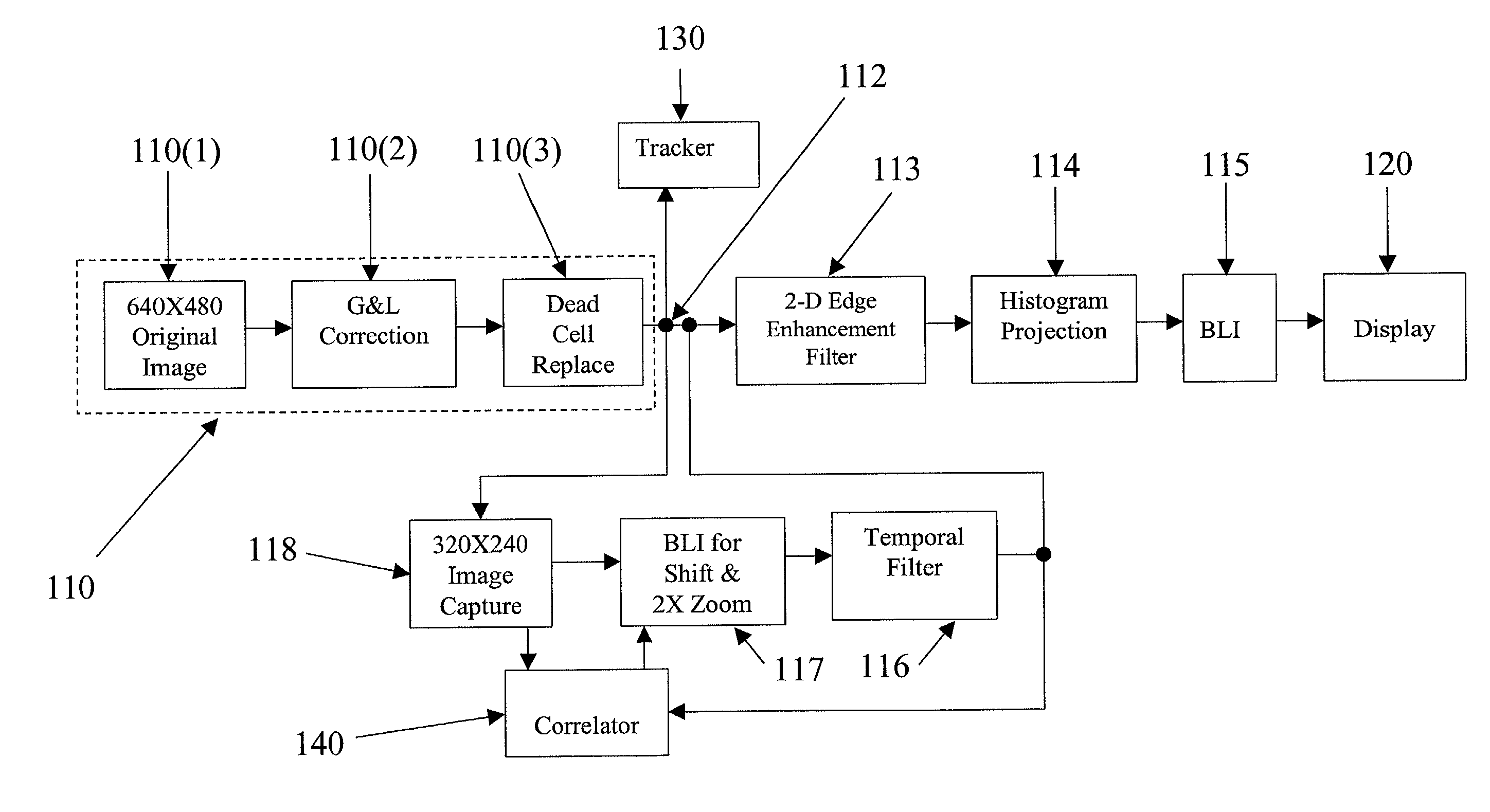Extended range image processing for electro-optical systems
an electro-optical system and image processing technology, applied in the field of image processing, can solve the problems of reducing the ability of a viewer to perceive, and limited resolution of the sensor used, etc., and achieve the effect of improving the snr
- Summary
- Abstract
- Description
- Claims
- Application Information
AI Technical Summary
Benefits of technology
Problems solved by technology
Method used
Image
Examples
Embodiment Construction
[0024]FIG. 1 is a functional block diagram of a system 100 for processing imagery, such as digital imagery, using an Electro-Optical (EO) system in accordance with an exemplary embodiment of the present invention. Image acquisition can be initiated by an operator or, for example, during target track. Initially, a first frame of data can be selected as a template frame, in any desired fashion. For example, the template frame can be selected from a database of possible templates, or can be captured using the EO system, or any other image source.
[0025]In the FIG. 1 embodiment, an image storage device 110 can store an image, referred to herein as an original image 110(1), in any known manner. The original image 110(1) can be a pre-stored frame of image data or image data acquired in any manner known in the art, from any of a variety of EO systems or sensors including, but not limited to, a thermal sensor, imaging radar sensor, infrared sensor or the like, or from, for example, the Field...
PUM
 Login to View More
Login to View More Abstract
Description
Claims
Application Information
 Login to View More
Login to View More - R&D
- Intellectual Property
- Life Sciences
- Materials
- Tech Scout
- Unparalleled Data Quality
- Higher Quality Content
- 60% Fewer Hallucinations
Browse by: Latest US Patents, China's latest patents, Technical Efficacy Thesaurus, Application Domain, Technology Topic, Popular Technical Reports.
© 2025 PatSnap. All rights reserved.Legal|Privacy policy|Modern Slavery Act Transparency Statement|Sitemap|About US| Contact US: help@patsnap.com



